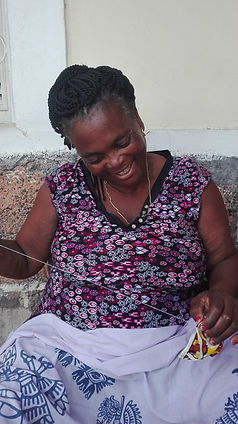

PROGRAMA TATÔ
IN São tomé AND PrÍncipe
The Archipelago of São Tomé and Príncipe is an important breeding and feeding area for five of the seven species of sea turtles in the world, Chelonia mydas (green turtle), Lepidochelys olivacea (olive ridley), Eretmochelys imbricata (hawksbill), Dermochelys coriacea (leatherback) and Caretta caretta (loggerhead). Sea turtles have traditionally been captured for human consumption on the island of São Tomé, and unregulated capture and trade have affected the populations of these endangered species.

Local Name: Cabeça Grande
This specie occasionally occur in the coastal waters, have been observed some nests.
Local Name: Mão Branca
Nº of Nests: 250 - 1150
Local Name: Tatô
Nº of Nests: 350 - 680
Local Name: Sada
Nº of Nests: 140 - 270
Local Name: Ambulância
Nº of Nests: 30 - 160
aware
involve
act
Sea turtles have been traditionally exploited for human consumption in São Tomé island. Thanks to the support of several technical and financial partners and the involvement of local communities, conservation and awareness-raising efforts have significantly reduced sea turtle consumption, changing behaviors, and consequently reversing the decline of sea turtle populations and improving the life conditions of members of coastal communities.

One of the greatest achievements of programa tatô has been the commitment of local communities.
One of the greatest achievements of Programa Tatô in recent years has been the commitment of local communities, biologists and national technicians in the conservation of sea turtles, as well as law enforcement becoming increasingly efficient in the country thanks to the increasing involvement of coastal communities, guardians of sea turtles and conservation leaders on São Tomé island.
constant
monitoring
25 km of beach monitored daily
during the nesting season that runs from September to April - it is 52 beaches on the North, East and South of the island.
50 km of beach monitored weekly
From November to February we perform weekly censos on 25 beaches that are less used by sea turtles.
unmonitored area
Cliffs area.

1/ Lobata
2/ Água Grande
3/ MeZóchi
4/ Cantagalo
5/ Caué
6/ Lembá

a team
people
80
of
Among local agents, former sea turtle traders, juniors graduated, biologists, national technicians and specialists in sea turtles, that guarantee the protection and monitoring of sea turtles; develop educative and awareness activities; develop and manage alternative economic activities to the coastal communities; and promote the sustainable development of marine and coastal ecosystems.
Get to know our projects.



























